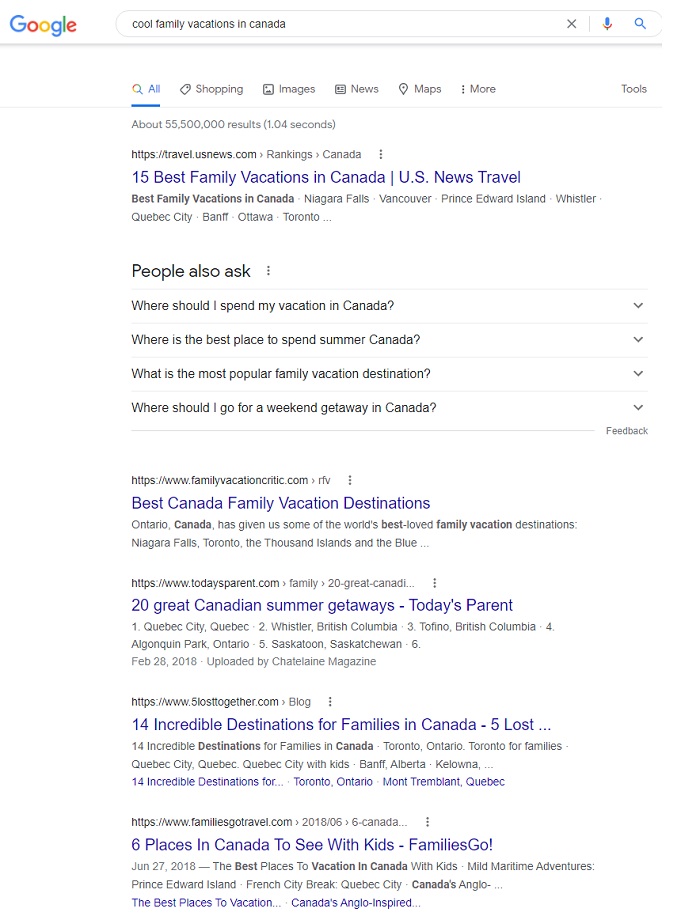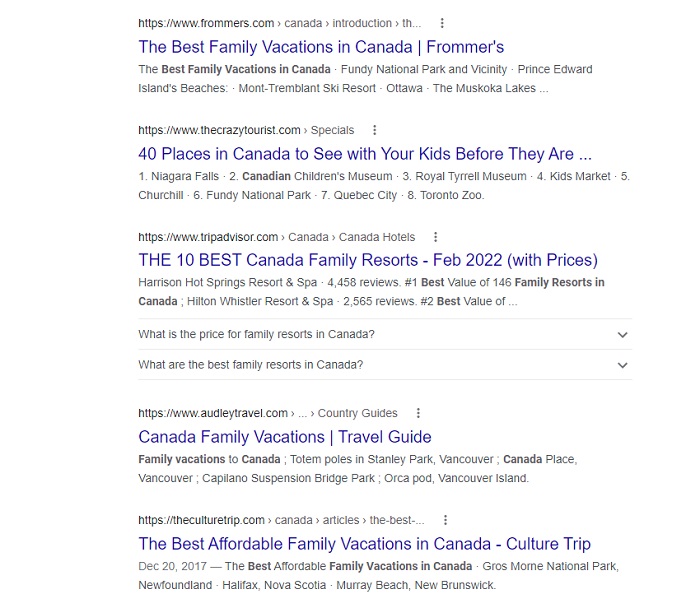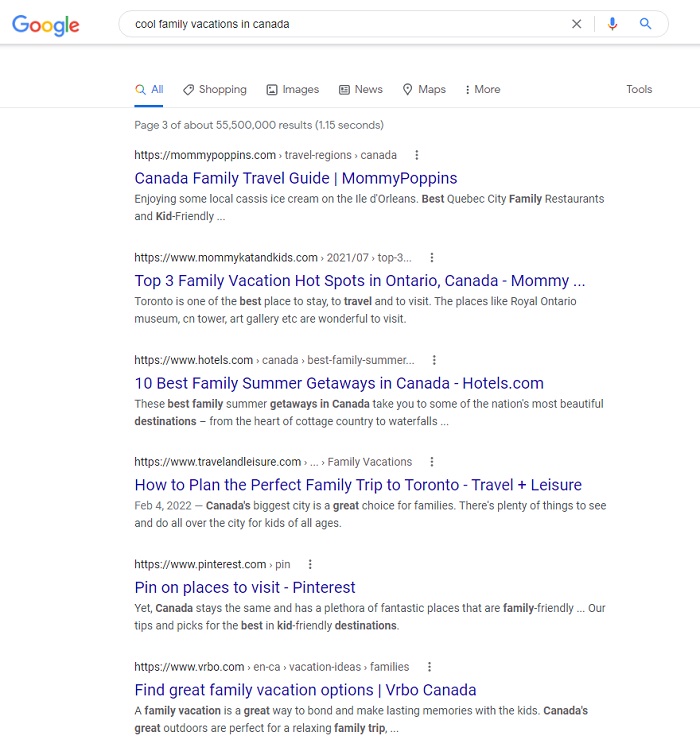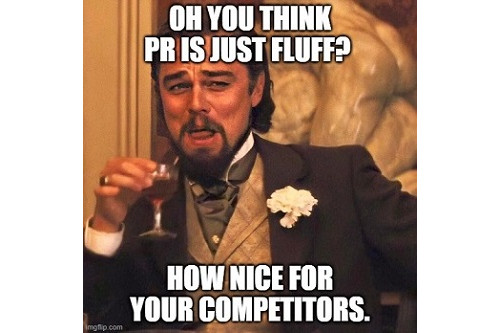PR is an essential part of the marketing mix for tourism. So says Redpoint, and you may think we’re biased because public relations is one of the marketing services we offer to the tourism industry. But the facts bear out our claim, and it’s largely due to two critical benefits of PR: reach and search.
Having been involved with tourism PR for 30 years – before the internet was even really “a thing” – I can attest that, like anything, it has always had its supporters and detractors. Supporters tout its ability to shape and even change a brand’s image, and its success at building awareness, sparking bookings, and mitigating crisis.
Detractors, however, are most often hungry for a more tangible and immediate ROI. Editorial coverage is never guaranteed, and even when it happens, the direct impact on sales isn’t always traceable. Someone could read a story about your destination or hotel in The New York Times this week, but not act on it until next year. So yeah, that story made an impression on them…but you may not be able to PROVE that story was the origin or even a contributing factor.
But while it’s true that investing in PR does require having a little faith in intangible results, social amplification and online promotion by news media reward that faith with some deeply tangible bite. And you can see the results in your own website stats.
This is all due to the glorious PR benefits of reach and search. Let’s take a look.
REACH
Let’s say you launch something and promote it on your own channels (email, socials, website, etc.). Your channels only reach so wide (for example’s sake, let’s say that’s an initial audience of 300,000), and your budget only goes so far to help amplify that story.
Then a high-profile media outlet writes about your story. And since that media outlet’s entire mission is to get visitors to its website (to attract/maintain advertising budgets with impressive web stats), it shares that story on all its social channels and in email newsletters to its subscribers. Their initial combined audience may be in the multiple millions, but at the very least is far likely to exceed yours and certainly extends beyond it. And if that story is picked up by dozens of media? The amplification grows exponentially.
One Specific Example: Last February, we helped the New England Inns & Resorts Association score a huge feature story in The Boston Globe. It promoted “Winter Beyond Skiing” and directed readers to a landing page with packages. The Boston Globe ran the story online, in print, through email, and on Facebook during the weekend of Feb 5-7. Here’s what the association’s website saw as a result.
Comparing 10 days before and after Feb 5:
- Page views to the landing page were up 226%.
- Direct traffic to the landing page had a 488% increase in users.
- The hotel with the lead offer in the story saw a 1,000% increase in users visiting its offer on the association’s website.
- Overall traffic to the site saw new users up 14% and sessions up 13%.
That landing page had already existed for a month prior to that weekend. The Boston Globe story just turned a powerful spotlight on it, helping extend its reach to both a broader and relevant audience.
Hot Tip Takeaway: If you want to better track the impact PR is having on your overall marketing success, make use of landing pages for story angles where possible and always check your web stats for spikes after key stories run. Not only does it underscore some of PR’s immediate and tangible results, it also could reveal useful potential media candidates for spending ad dollars wisely. If it’s clear a media outlet’s audience finds you relevant, then consider dropping your paid ad line in that pond, where the fish like your bait.
SEARCH
In many cases, media outlets and relevant blogs are likely to have far greater success with search results than your individual business will. This is due the way search engines like Google rank a site’s authority, which is born of everything from how frequently searches find satisfaction in their site’s search result to volume of overall users.
Search engines are notoriously secretive on their ranking cocktail ingredients. But suffice it to say, for many types of searches, it’s far more likely that – say – a story that includes you in Travel + Leisure will appear higher in search results than your own website’s blog post. And even if your own website ranks highly in search results for that subject, wouldn’t it be awesome if you were also mentioned in most of the items on the first three pages of search results? In that way, a slew of different search results on the same topic will lead to YOU.
And with consistent, widespread PR outreach…they can. Case in point: There are plenty of hotels and regional destinations in Canada that offer cool vacations for families. Yet, with a search done for “cool vacations for families in Canada,” none of them turn up on the first three pages of organic search results. But look at what DOES turn up:



Parenting travel blogs, media outlets, the blogs of booking sites…they’re ranking higher in search than specific hotels or destinations, even if those places have a blog post on their websites about how awesome they are for families.
Hot Tip Takeaway: It’s only natural to crave the BIG feature stories in PR, but don’t look down your nose at small mentions, especially in round-up articles like the ones featured in the above search results pages. Editorial stories in media outlets that highlight “the best of this” or “the coolest that” do exceedingly well in search results and could lead a ton of highly relevant visitors to your website.
The bottom line is that, with online and social amplification lending its power to the equation, PR is more essential than ever in tourism marketing. If you’re not doing it, or doing it inconsistently, you should definitely consider exploring how it can help grow your business. Because even if you’re not…your competitors are.

Not sure where to start? Check out our experience and give us a shout. No strings…we’ll just talk you through it.
 get travel marketing tips
get travel marketing tips 




